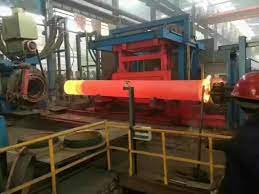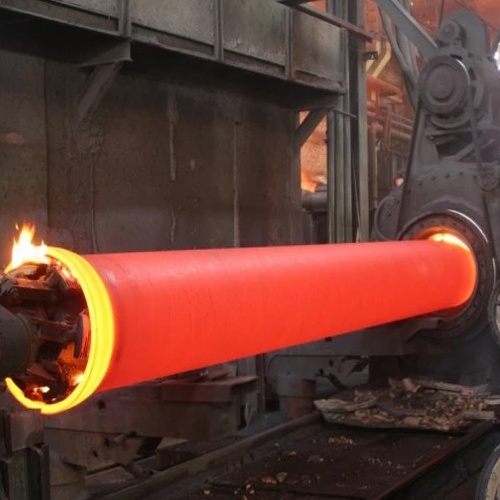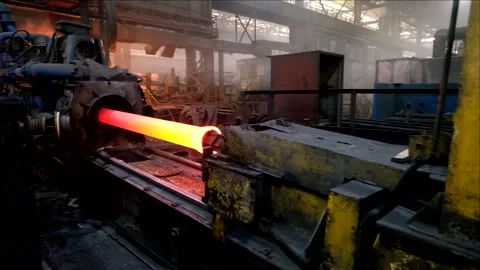What is Centrifugal Ductile Iron Pipe?
2024-12-23 15:05:36 hits:0
Centrifugal ductile iron pipes, also known as centrifugal cast ductile iron pipes, are produced using a centrifugal casting process. In this process, molten ductile iron is poured into rotating molds, and centrifugal force ensures uniform distribution of the material, resulting in improved mechanical properties. Compared to traditional gray cast iron pipes, ductile iron pipes have superior strength, toughness, and wear resistance, making them ideal for demanding applications
.
Main Applications of Centrifugal Ductile Iron Pipes:
- Water Supply Systems: They are widely used in municipal water supply, industrial water supply, and agricultural irrigation systems due to their high strength and corrosion resistance.
- Sewage and Drainage Systems: Ductile iron pipes are commonly used in sewage and wastewater discharge systems, benefiting from their resistance to internal and external corrosion.
- Gas Transmission: These pipes are also used in the transportation of natural gas and coal gas, where their durability and pressure resistance are essential.
- Industrial Pipelines: In various industrial processes, ductile iron pipes are used to transport chemicals, oil, and other substances.
Key Technical Specifications:
Mechanical Properties:
- Tensile Strength: Generally ranging from 420 to 600 MPa, ductile iron pipes offer high tensile strength, which makes them capable of withstanding significant external forces without breaking.
- Yield Strength: Typically ranging from 300 to 450 MPa, providing stability under pressure or bending.
- Elongation: Usually between 8% and 12%, indicating good ductility, which means the pipe can stretch without breaking.
- Impact Toughness: With a common value of ≥10 J (at room temperature), ductile iron pipes exhibit excellent resistance to impact and mechanical loads.
Dimensions and Tolerances:
- Pipe Diameter: Typically ranging from 80 mm to 2000 mm, ductile iron pipes can be manufactured to meet various project requirements.
- Wall Thickness: Ranges from 3 mm to 40 mm, depending on the pipe diameter, pressure class, and intended use.
- Length: Standard pipe lengths are generally 6 meters, 9 meters, or 12 meters, with customized lengths available upon request.
Corrosion Resistance:
- Ductile iron pipes feature superior corrosion resistance, especially when treated with protective coatings such as epoxy resin or polyethylene. This makes them suitable for use in water, soil, and other corrosive environments.
Pressure Ratings:
- Ductile iron pipes are available in various pressure classes, such as PN 3.0, PN 5.0, and PN 10.0 MPa, where the number indicates the maximum working pressure in megapascals. For example, PN10 pipes are commonly used in water distribution systems, while PN16 and higher pressure classes are used for natural gas transmission and other high-pressure applications.
Surface Quality:
- The centrifugal casting process ensures that ductile iron pipes have smooth internal and external surfaces, minimizing friction and reducing the accumulation of deposits inside the pipes, which also helps to extend their lifespan.
Hydrostatic Testing:
- During manufacturing, ductile iron pipes undergo hydrostatic pressure tests to ensure their structural integrity. The pipes are subjected to pressures of up to 1.5 times their rated working pressure to verify that they can withstand operational conditions without rupturing.
Wear Resistance:
- The hard surface and durability of ductile iron pipes make them ideal for applications where abrasive materials, such as sand or other particulate matter, are present in the fluid being transported.
Heat Resistance:
- Ductile iron pipes perform well at temperatures up to 250°C in most environments. Specialized treatments allow them to maintain their mechanical properties at higher temperatures as well.
Thermal Expansion:
- Ductile iron pipes have a relatively low thermal expansion coefficient, usually between 10-12 × 10⁻⁶/°C, ensuring minimal deformation in environments with significant temperature changes.

 en
en  fra
fra  de
de  ru
ru  gle
gle  th
th  ara
ara  it
it  jp
jp  kor
kor  zh
zh 




